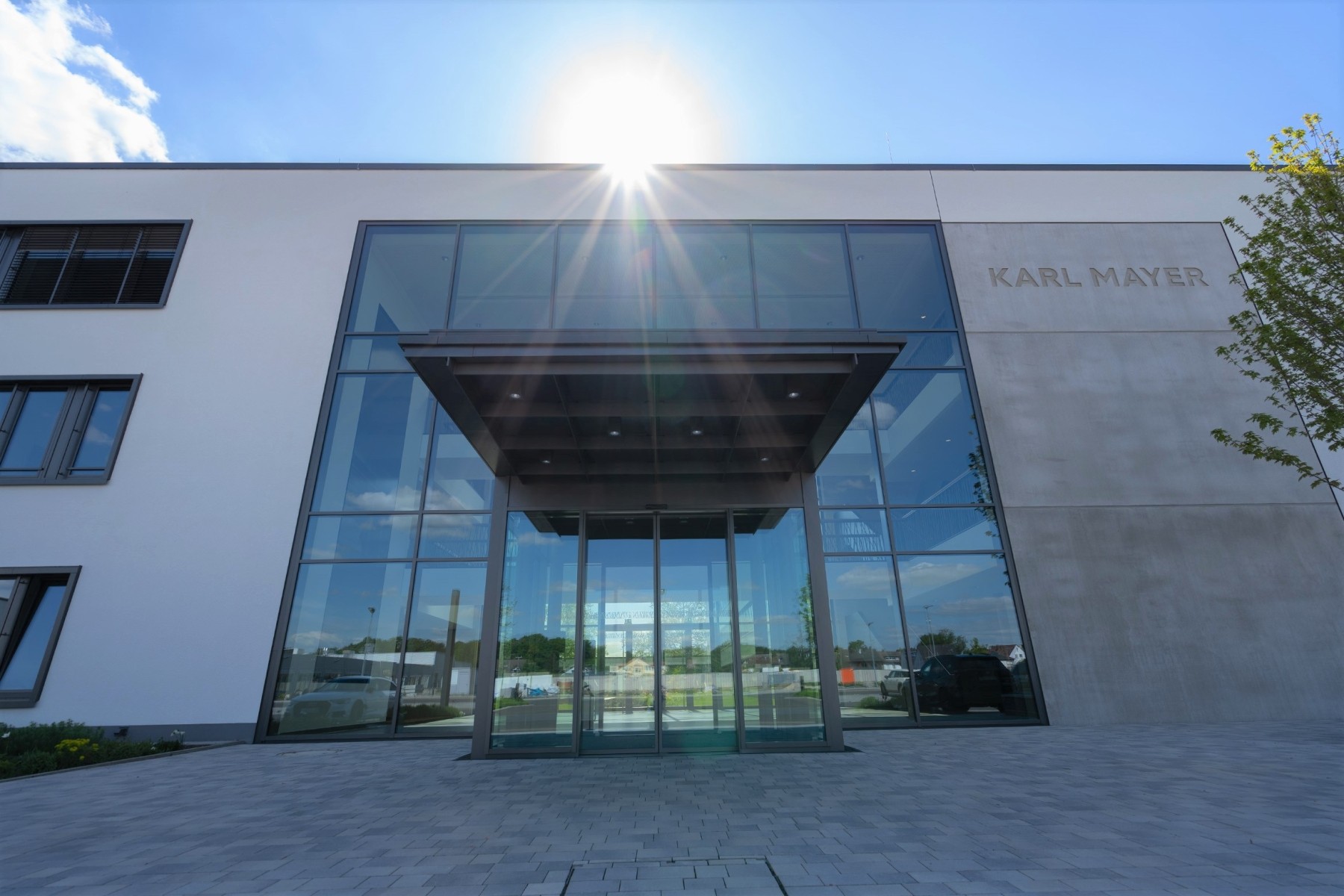
Jubilee review
A quick visit to Karl Mayer in the new headquarters of the KARL MAYER Group Learn moreGrowing together" has been the maxim of the KARL MAYER Group since its beginnings in 1937, and this is also the motto of its 85th founding jubilee this year. In keeping with this, the Managing Directors of the global player, Arno Gärtner and Dr. Helmut Preßl, planted a tree in the courtyard of the headquarters in Obertshausen on 27 April 2022.
Topics:
"An anniversary is always a good opportunity to look back on the company's history, and a tree is a very nice picture of how a company develops.”
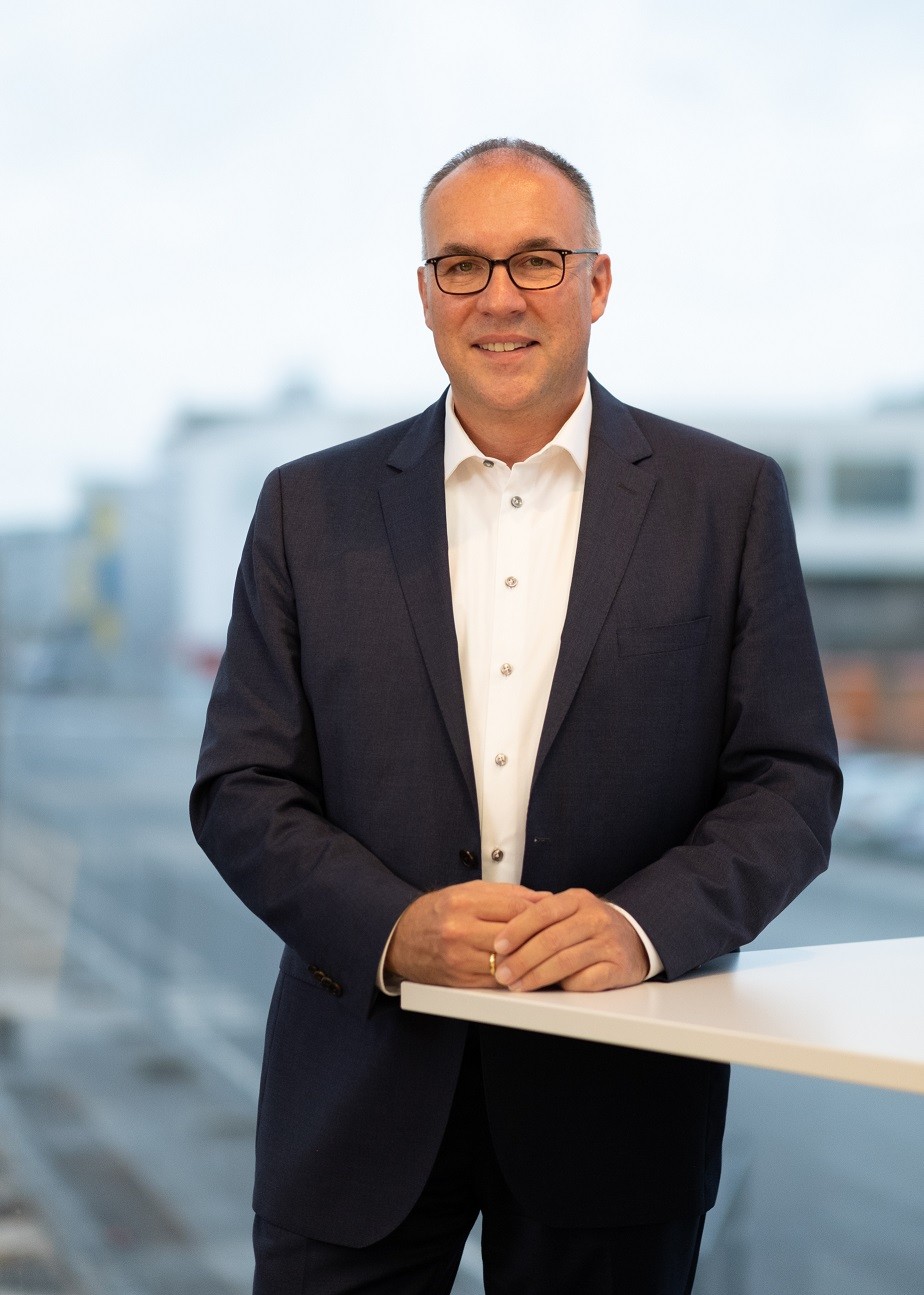
If you want to take a look at the origins of the group of companies, you don't have to go far. In August of last year, its headquarters moved into a new building. The working world of tomorrow is already at home in this light and airy space, but there is room for the past as well. Right next to the entrance, in the modern foyer, there is a reconstruction of Karl Mayer’s original office inviting you to step straight back into the history. The highlight is the company founder’s sturdy desk – looking as though he just stepped away for a brief moment – with his telephone, pen holder, desk pad covered in handwritten notes, and gifts from visitors from around the world. Original photos next to the desk tell a story full of turbulence, change, courageous decision and hands-on action. The headline, and today still the motto for all employees is: “What we do, we do right”.
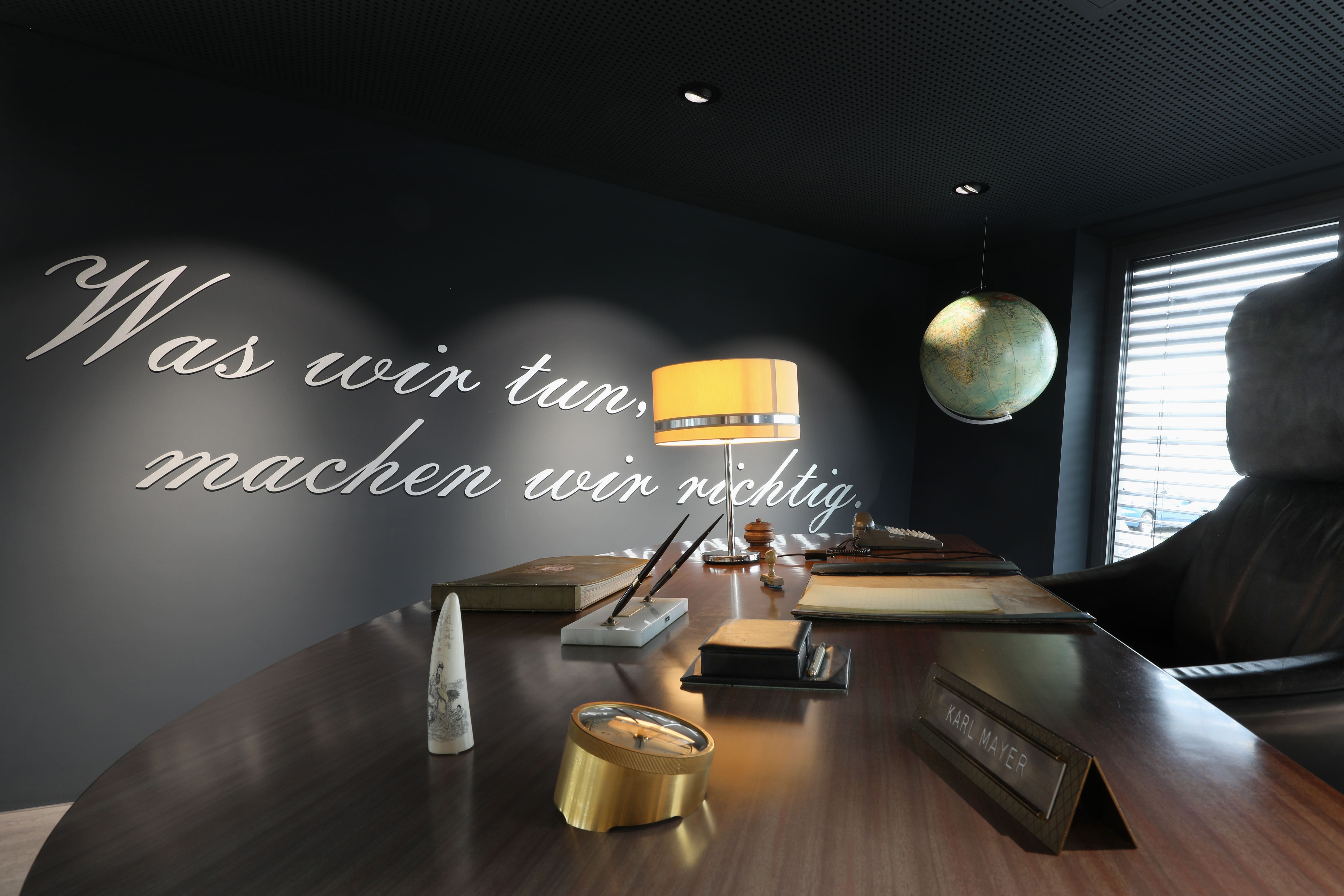
The Japan story
Among the important historical images is an old engraving that depicts the panorama of Hamburg and its harbour as a gate to the world – an important symbol for global player Karl Mayer. Back in December 1949, he had already launched his export business with a delivery to Greece. The first machine shipment to Asia followed in June 1954 – it went to Japan. Due to a lack of fitters, the company founder boarded the plane himself to install the 27 machines – and initially, he didn’t receive a very warm welcome. “The Japanese sent an angry telegram saying they expected experts, not globetrotters”.1 Three weeks later, all the machines had been installed at the customer’s locations – some of which were quite a distance from one another – and were producing fabric that sold as fast as they could produce it.
This made a name for Karl Mayer in the Japanese textile industry, and the president of the Japanese company felt compelled to apologise for the “globetrotter” remark. As a sign of his gratitude, he presented the resourceful company founder with a “selfie” that hangs in the company’s new headquarters today as a reminder of this notable project. Next to the photo is another testament to Karl Mayer’s pioneering work in Japan at the time: an ornamental document from March 1990 presented by Japan’s Minister for Industry and Commerce in gratitude for the investments in his country. By 1967, Karl Mayer had already founded a sales and service branch in the Land of the Rising Sun. He also signed an agreement with a Japanese company to permit licensed production of Karl Mayer machines, eventually merging with the company in autumn 1968. This was a first in the history of Japanese business: never before had a German manufacturer been granted permission to purchase half the shares of a Japanese company. The joint venture was also the country’s first company with foreign capital on the coast of the Sea of Japan.
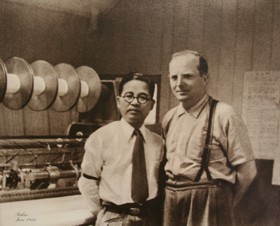
Doing the impossible in the land of opportunity
Karl Mayer also did groundbreaking work in the USA. The first warp knitting machine from Obertshausen, Germany, was delivered to the economic superpower in 1951. Just five years later, the company founder also established a branch in the USA, setting new standards in the business world at the time. Back then, North American companies set up branches in Europe, not the other way around – given the foreign currency restrictions at the time, it was extremely unusual. Karl Mayer went on to expand the US business
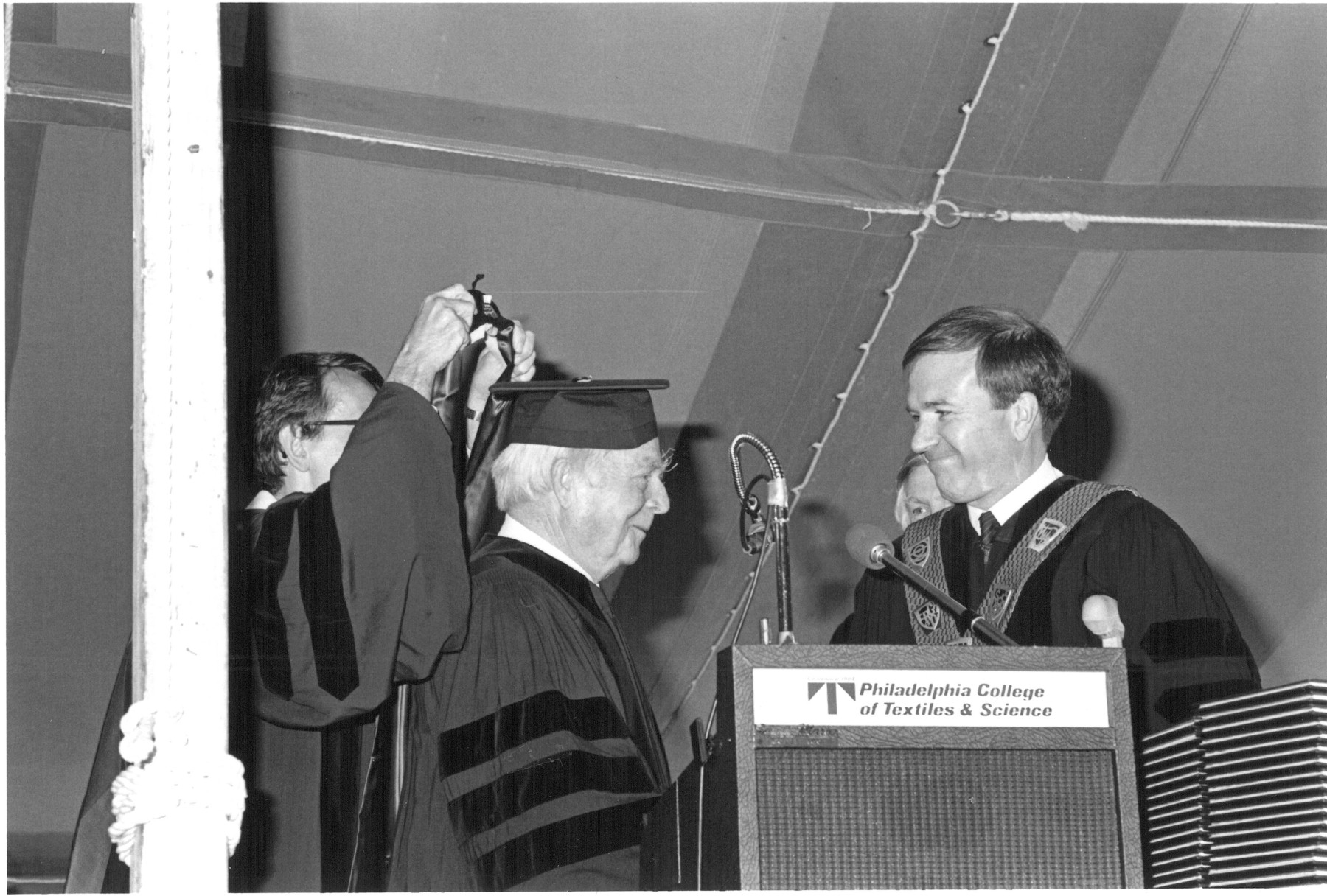
In 1968 alone, the company delivered 180 metric tonnes of air freight, and it also initiated its partnership with the Philadelphia College of Textiles and Science. The students were thrilled with the training machines and educational materials provided by the global leader in the field, and Karl Mayer himself was extremely honoured to be a part of the partnership. In May 1985, the Philadelphia College presented Mayer with an honorary doctorate in textile sciences in recognition of his contributions to education and the American textile industry.
Credit where credit is due
Further documents from the history of the KARL MAYER Group show Karl Mayer as a businessman deeply committed to social causes. Between the 1950s and 1970s, he was active in local politics and grew into an important employer in the region. In 1945, only 70 employees at the first KARL MAYER factory – which had just 300 m² of floor space – worked on restoring old vehicle engines. 1968, after 20 years of textile machine engineering, the factory had grown to 2,100 employees and 65,000 m², and KARL MAYER shipped out its 25,000th machine. The enormous production volume also kept 250,000 people in the supply industry employed. In March 1968, the regional representatives of Obertshausen honoured Karl Mayer's work in building up the town by awarding him honorary citizenship.
Registernow for free to get access to more interesting content
